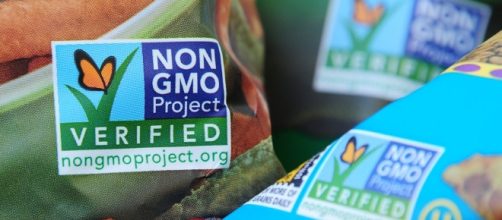Lately, there have been a lot of ads boasting 'GMO-free' products. GMOs being (as you probably know) genetically modified organisms. With this on rise, here are three (science-backed) things that you should know.
1. GMOs are safe to eat
There we said it. GMOs are safe to eat. To date, there has been no verifiable, properly conducted scientific study to support otherwise. On top of this, GMOs can benefit humans as a whole by allowing them to reduce the use of pesticides on certain crops. According to an article published by Harvard University, “… studies have found no evidence that GMOs cause organ toxicity or other adverse health effects." In spite of this, people still seem to have a problem with the whole sci-fi 'franken-food' kind of vibe.
Public efforts to label GMOs exhibit this public worry over this 'new' technology. Yet - can we really call it new?
2. GMOs are not new
Humans have been genetically modifying crops since the beginning of agriculture. No, they didn't use precision machines to splice genes into their plants genomes, but they did something equally effective (it just took a lot longer). It's called selective breeding. Do you really think everything we eat, from a banana to a watermelon, is really in nature's purest form? Open up a banana. Can you find the seeds? No, of course you can't. Because we bread bananas to not have seeds a long time ago. This is what many people don't realize. New GMO technology (like CRISPR) just does what humans have been doing since 9000 BCE in a more precise and controlled way.
Despite all this, organizations have been popping up claiming to verify 'Non-GMO.'
All natural #nonGMO banana pic.twitter.com/gHAxBqCfRD
— Sharif Matar (@sharifmatar) April 15, 2015
3. There is no such thing as 'Non-GMO'
With all that in mind, can organizations really claim to verify products as 'Non-GMO?' The answer is no. There is no scientific difference between the two. On top of this, nearly every food on the market today is GMO-ed to some extent (through selective breeding). Yet these organizations only see GMOs as the new technology, and not what we have been successfully doing for ages. Take the Non-GMO project for example. On their website, they claim that GMOs are dangerous and that they work to verify products are GMO free.
Yet claiming Non-GMO is just about equivalent to claiming 'all natural' ( which it seems just about every product is doing now). It carries no backed-up weight and is just a way for companies to put themselves ahead of their competitors.
#GMO's since 1996:
— CropLife Internat'l (@CropLifeIntl) July 9, 2017
Over 1000 scientific studies conducted
20+ years of use
3 trillion meals & snacks consumed
0 food safety/ health issues pic.twitter.com/t08XdDTaWe
So, all of this being said, the next time you see a box of your favorite cereal with that little stamp that says 'Non-GMO project verified,' you will know what's really up.


